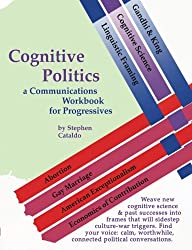Take a look at Cannon Thomas, Ph.D's Politics and the Catastrophe of Us and Them: We have to change the way we view the opposing party for our nation to thrive. The article favors what I call "floater" centrism: it lists a whole bunch of acts of violence all by one side, and draws the conclusion that we're all equivalent (floating between the parties) instead of calling out each transgression and holding an ethical center. This is what a therapist might do (it is in Psychology Today) but misses something vital for politics. What would rooted centrism look like? What would it mean to speak truth when evil occurs, without false equivalence nor tribalism?
I agree there is a "catastrophe of us and them," and we cannot divorce voters we disagree with, we have to find ways to communicate and convince. "False equivalence" doesn't help, and leads the people who want (radical) civility and people who want to stand up against evil to get into squabbles when we should be implementing new strategies together. We're not doing radical civility right — it's not what Gandhi or King did — if you can't draw a line and speak the truth that the protest in Charlottesville is evil.
Are you angry at an act of homophobia, something that will endanger your friends, or at "Republicans"?
The "Catastrophe of Us and Them" does not come from drawing a clear line against hate or evil and standing your ground: it comes when you say "they" are wrong in every way, a simmering vague anger. I think that gets us in more trouble, this sense that we just hate each other in general (for being who they are; shame) rather than being very angry for specific actions and choice (for doing or supporting specific actions; guilt). It's especially bad when it's not personal but you're still angry: if it's not your family, if it's not your story, then share the story of people who are personally under attack — especially on social media.
People can still be conservative and earn my respect if they reject the hate coming from the Republican party: neither false equivalence nor tribalism. If you want to be effective when there is something worth getting angry at, look at your posts and conversations, and see who villain is. Is the group drawn in the smallest way possible, so people can stop participating in a specific wrong without changing overall allegiance? That's an effective, non-tribal way to draw real lines.
The article talks about breaking down us and them, which is great, but it's not realistic to list acts of violence all from one side then give a gentle hug-it-out answer. We need to break down the us and them between individual voters while getting ever more clear about right and wrong.
Please participate and help me tune this! What are good vocabulary terms for the two types of centrism, the one that declares the parties always equivalent, and the one that has values free of partisanship that it defends? What examples do you have, of this being done right or wrong? Critiques welcome!
